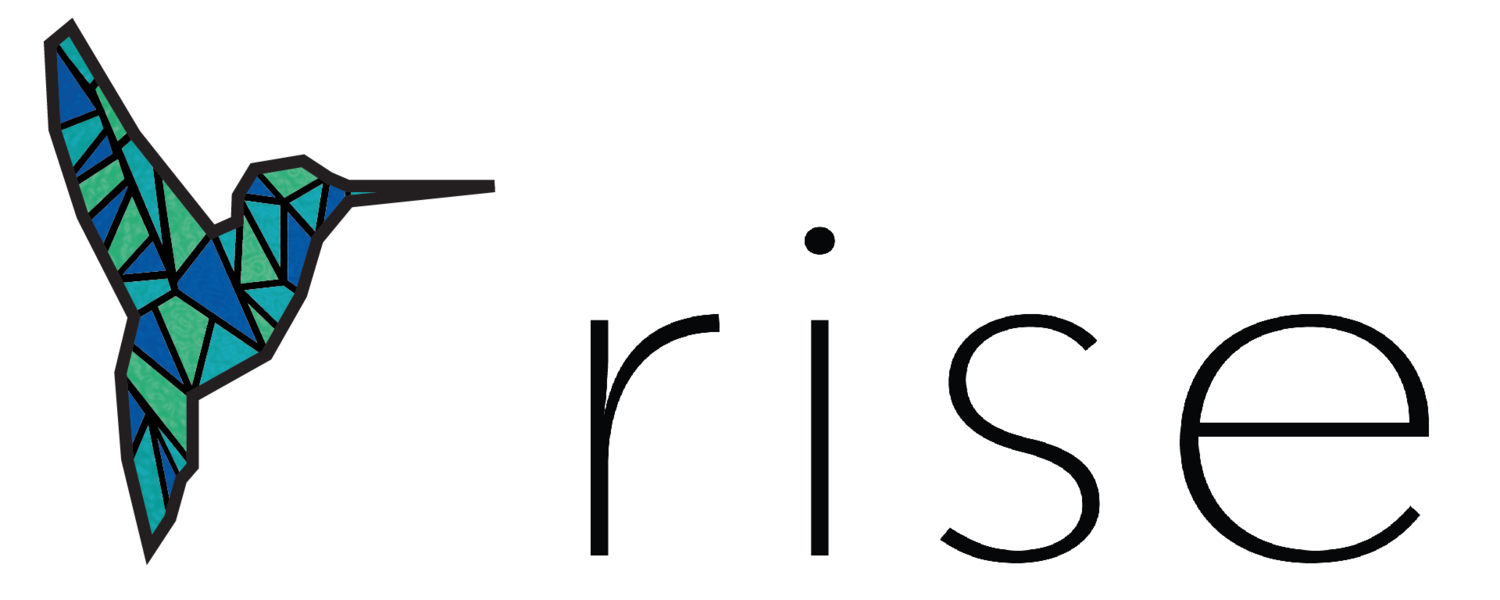The Flight: A Monthly Book Sampler (April 2019)
Andrea Humphries, our resident bibliophile (and a board member), writes a monthly post about what she’s learned from the books she’s reading. Today, she’s here with what she learned in April:
I read an interesting mix of books in April and I learned something different from each one.
Becoming Wise, by “On Being” host Krista Tippett, was a reminder of common grace and the power of good questions and good conversation. I think these are things that, while they’ve always been valuable, are simultaneously more rare and more necessary than they’ve ever been, given the myriad ways in which we’ve become so highly polarized. I frequently wonder what would happen if we made a habit of sitting down across a table from people “on the opposite side” of an issue we feel strongly about and everyone committed to asking questions and continuing the conversation. I think we all underestimate the impact it would have. I strongly recommend the audiobook, since it makes extensive use of the audio from the many, many interviews Tippett has done for “On Being.”
I’m slowly working my way through Lauren F. Winner’s books — Mudhouse Sabbath is fantastic; I found Girl Meets God underwhelming and Wearing God was a bit of a roller coaster. Some parts I loved, others...not so much. But it definitely got me thinking. The subtitle of the book is “Clothing, Laughter, Fire, and Other Overlooked Ways of Meeting God” and as she says in the introduction, it’s a book about exploring “what pictures, what images and metaphors, does the Bible give us for who God is, and what ways of being with God might those pictures invite?” In my experience, whether because of our church environment, our personalities, our families, our traumas, or a messy combination of all those things, we tend to get locked into thinking of God in just a few ways — King, Father, Shepherd — and not really delve into the vast array of ways in which the Bible describes God. I think anything that encourages us to go beyond those default conceptions is worthwhile.
For the last six months or so, I’ve subscribed to Emily P. Freeman’s podcast, “The Next Right Thing.” I was thrilled when she announced that she would be writing a book of the same title, further exploring the processes of decision-making and what it looks like to figure out your next right thing and do it. Both the book and the podcast are for people suffering from decision fatigue and those who are “chronically hesitant,” so I actually stayed away from the podcast when it first came out because I didn’t feel like either of those descriptors fit me very well. But I realized that I was thinking exclusively in terms of really big decisions, not small things like not being able to decide what to make for dinner. Between the podcast and the book, I’m getting better at recognizing just how many decisions I make in a day (my job involves an absurd number on some days) and figuring out which ones are urgent, which ones can wait, and what my next right thing is. As an aside, I find Emily’s voice really soothing so this is another one that I recommend you listen to the audiobook.
I finished reading Brene Brown’s Dare to Lead in April. I started it in February and was working through it slowly, but having it sit beside my desk saying, “I’m still here, unfinished!”, was stressing me out, so I decided to curl up in my comfy chair and just finish it. If you’ve read Brown’s previous books, then a lot of the content in Dare to Lead will be familiar. I found the recap really helpful, though, because it’s been a while since I read Rising Strong and Daring Greatly in particular. My experience of reading this book was pretty typical of my experience reading the rest of Brown’s work:
nodding along and agreeing with her assertions/evidence;
noting what doesn’t apply to me/fit my situation, while thinking of all the people I know who need to read the book;
getting figuratively smacked over the head with an uncomfortable and undeniable truth about some sort of unhelpful/unhealthy strategy and/or coping mechanism that I’ve been using for years and now realize I need to unlearn; and lastly,
feeling pretty ridiculous for repeating this pattern again.
Maybe by the time she writes another book, I’ll have stopped circling the same mountain?
I was honoured to read a couple friends’ manuscripts in April as well. I can’t tell you much about them, but between reading them and also K. B. Hoyle’s Breeder, I was reminded of just how much I love being friends with authors. Being trusted with their words before they’re perfectly polished and locked in, being able to ask questions and offer feedback, being able to message them and freak out over what they’ve done to a character is one of my favourite things right now. I also love being friends with people who are clearly smarter than me and challenge me with what they write.
